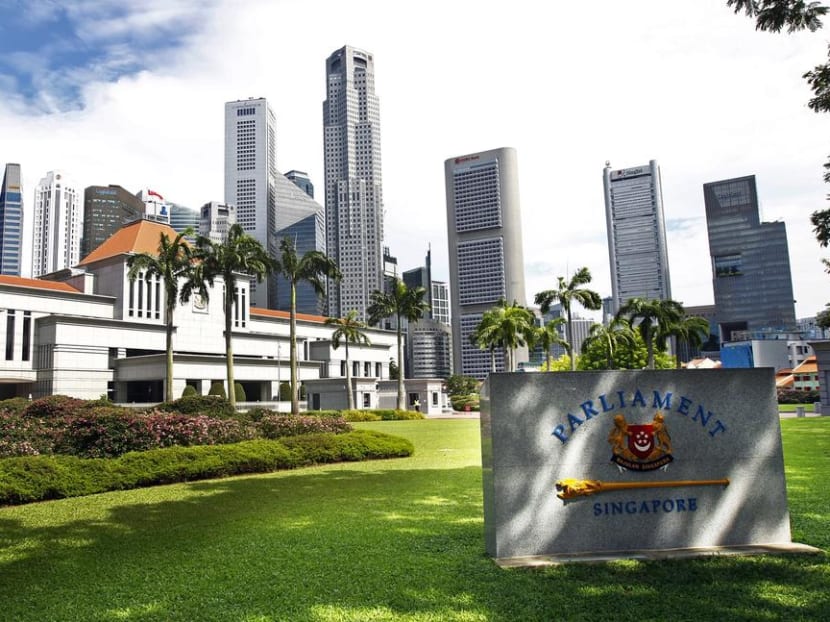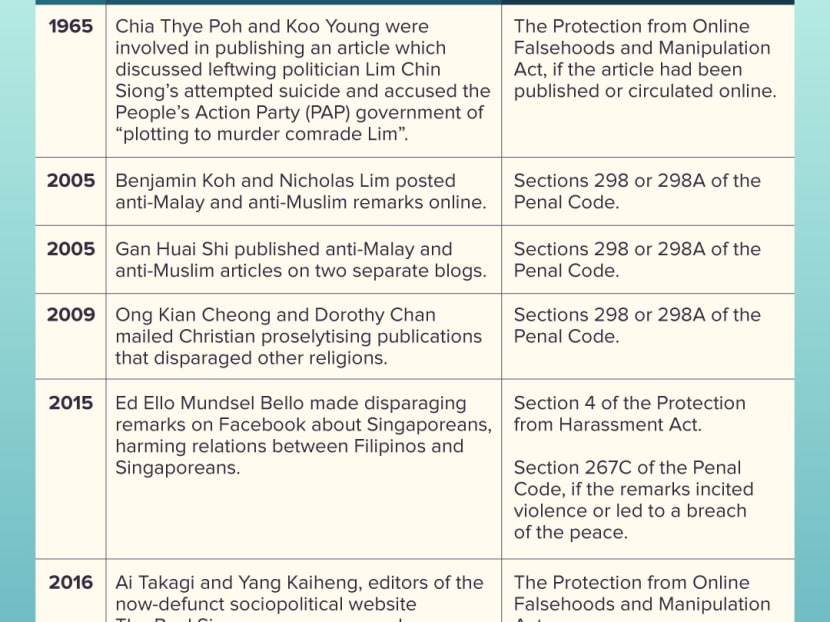MHA proposes repeal of 83-year-old Sedition Act, as more recent laws deal with same concerns in ‘more targeted’ ways
SINGAPORE — The Sedition Act, which criminalises conduct with seditious tendencies, might soon be repealed, as the Ministry of Home Affairs (MHA) said it has “limited application” in Singapore today.

There have been just six prosecutions under the Sedition Act since it was introduced in 1938. A Bill was tabled in Parliament to repeal the Act.
- The Sedition Act was introduced in 1938
- It criminalises conduct that could weaken Singapore’s social fabric and undermine its institutions
- But new laws have been introduced since which deal with the same concerns and are more targeted, the Ministry of Home Affairs said
- The Penal Code will be amended to include parts of the Sedition Act which are not covered by the newer laws
SINGAPORE — The Sedition Act, which criminalises conduct with seditious tendencies, might soon be repealed, as the Ministry of Home Affairs (MHA) said that it has “limited application” in Singapore today.
A Bill was tabled in Parliament on Monday (Sept 13) to repeal the Act, which was introduced in 1938 to address various forms of conduct that could weaken Singapore’s social fabric and undermine its institutions.
In a statement explaining why it was proposing to repeal the law, MHA said that new laws have been introduced in the years since, which deal with these concerns in a “more targeted and calibrated manner”.
However, one aspect of the Sedition Act, ensuring social cohesion between different groups within Singapore, continues to be relevant, it added.
And so, alongside the repeal of this Act, the Bill also proposes to amend the Penal Code to include these laws.
THE SEDITION ACT
Since 1938, the Act has criminalised conduct that:
Brings into hatred or contempt, or excites disaffection, against the Government
Excites the citizens or residents of Singapore to “procure the alteration”, other than by lawful means, of any matter established by the law
Brings into hatred or contempt, or excite disaffection, against the administration of justice in Singapore
Raises discontent or disaffection among citizens of residents of Singapore
Promotes feelings of ill-will and hostility between different races or classes of the population
MHA noted that new laws have been introduced over the years to deal with many of these concerns in a more targeted and calibrated way. These include:
The Maintenance of Religious Harmony Act
The Protection from Online Falsehoods and Manipulation Act 2019
The Administration of Justice (Protection) Act 2016
The Undesirable Publications Act
The Newspaper and Printing Presses Act
Specific provisions under the penal code
“Thus, the Sedition Act is of limited application and can be repealed,” MHA said in its statement.
Since its introduction in 1938, there have been six prosecutions under the Sedition Act, five of these taking place between 2005 and 2016.
The most recent prosecution, in 2016, took place when two editors of the now-defunct sociopolitical website The Real Singapore encouraged anti-foreigner sentiment through online posts.

CHANGES TO THE PENAL CODE
The Penal Code will be amended so that it can continue to cover actions that affect cohesion between “different classes of the population” in Singapore that are not already covered by any of the newer laws.
For example, the Maintenance of Religious Harmony Act and Sections 298 and 298A of the Penal Code cover cases of disharmony involving religious and racial groups.
With the repeal of the Sedition Act, there is still a need to ensure that there are laws to deal with serious cases of disharmony involving other categories or groups, MHA said.
Thus, Section 267C of the Penal Code will be amended to raise the “threshold of culpability”, it added.
Presently, this section prohibits the making, possession or dissemination of material containing any incitement of violence against others, “counselling others to disobey the law”, or which is likely to lead to a breach of the peace.
MHA will amend the section to also cover acts such as speeches and other verbal communications that could lead to violence, disobedience to the law or a breach of peace.
It added that there will be an amendment to clarify that “counselling others to disobey the law” includes, but is not limited to, providing instruction, advice or information that promotes disobedience to the law.
Currently, under the section, it is an offence to make (by printing, for example), a document or electronic communication that:
Contains an incitement to violence, or
Counsels disobedience to the law or any lawful order of a public servant, or
Is likely to lead to a breach of peace
MHA proposed that the scope of the section’s application be narrowed, to require that the offender “intended for the violence, disobedience to the law, or breach of the peace to occur, or knew or had reason to believe that these would likely occur”.
CHANGES TO THE CRIMINAL PROCEDURE CODE
A person can be arrested for offences under the Sedition Act. With its repeal, there is a need to ensure that the police can continue to act “swiftly and effectively when dealing with egregious cases that affect social cohesion”, MHA said.
Thus, the Criminal Procedure Code, which is part of the Penal Code, will also be amended to make the following offences arrestable:
Section 298 of the Penal Code, which criminalises the deliberate wounding of any person’s religious or racial feelings
Section 298A, which criminalises the promotion of disharmony between different religious and racial groups and acts which are prejudicial to the maintenance of harmony between religious or racial groups and which disturb public tranquility
Section 505, which criminalises, among other things, the making, publication, or circulation of material with the intent to incite any class of persons to commit an offence against another class of persons
MHA added that since the offences under section 267C are already arrestable, no further amendment is required for the section.











